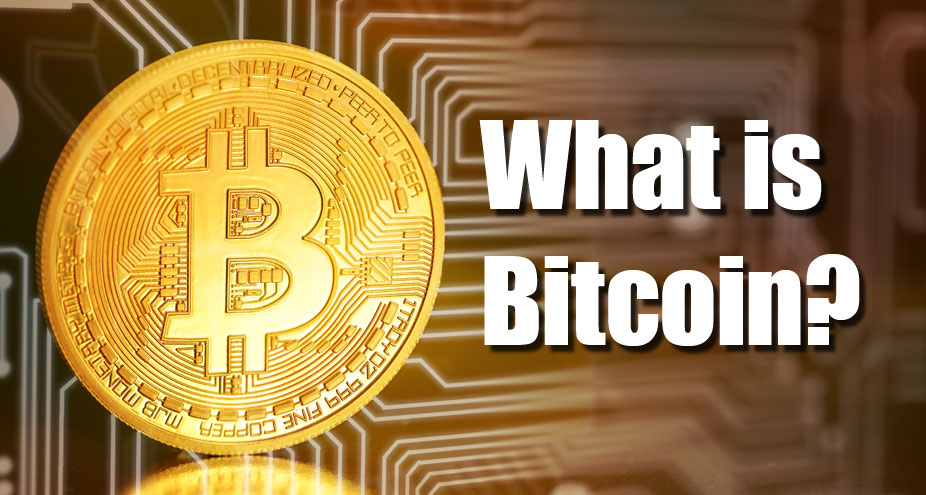How precisely to classify Bitcoin involves contention. Is it a sort of money, a store of significant worth, an installment organization, or a resource class?
Luckily, it’s simpler to characterize what Bitcoin really is. It’s the product. Try not to be tricked by stock pictures of glossy coins decorated with altered Thai baht images. Bitcoin is an absolutely advanced marvel, a bunch of conventions and cycles.
It additionally is the best of many endeavors to make virtual cash using cryptography, the study of making and breaking codes. Bitcoin has motivated many imitators. Yet it remains the biggest digital money by market capitalization, a differentiation it has held over time in addition to history.

The Blockchain
Bitcoin is an organization that sudden spikes in demand for a convention known as the blockchain. A 2008 paper by an individual or individuals calling themselves Satoshi Nakamoto originally portrayed both the blockchain and Bitcoin. And for some time, the two terms were everything except equivalent.
The blockchain has since developed into a different idea, and a great many blockchains have been made utilizing comparative cryptographic strategies. This set of experiences can make the classification confounding. Blockchain, in some cases, alludes to the first Bitcoin blockchain. On different occasions, it alludes to blockchain innovation or some other explicit blockchain, for example, the one that powers Ethereum.
Article: Grow Your YouTube Channel and Earn More Money
The nuts and bolts of blockchain innovation are kindly direct. Any given blockchain comprises a solitary chain of discrete squares of data, masterminded sequentially. On a basic level, this data can be any line of 1s and 0s, which means it could incorporate messages, contracts, land titles, marriage endorsements, or security exchanges. In principle, any agreement between two gatherings can be set up on a blockchain as long as the two players concur on the agreement. This removes any requirement for an outsider to be associated with any agreement. This opens a universe of potential outcomes, including shared monetary items, similar to credits or decentralized investment funds and financial records, where banks or any go-between is unessential.
Definition: What is Bitcoin?
Bitcoin, dispatched in 2009, was the first of another sort of resource called cryptographic money, a decentralized type of advanced money that wipes out the requirement for customary middle people like banks and governments to make monetary exchanges.
All things being equal, Bitcoin is controlled through a blend of shared innovation — an organization of people, much like the volunteer editors who make Wikipedia — and programming-driven cryptography, the study of passing mystery data that must be perused by the sender and beneficiary. This makes money upheld by code instead of actual worth, similar to gold or silver, or by trust in focal specialists like the U.S. dollar or Japanese yen.
Also Read: How to check home wi-fi speed
How does Bitcoin work?
Each bitcoin (exchanging image “BTC,” however “XBT” is additionally utilized) is a PC record put away in a computerized wallet on a PC or cell phone. To see how the digital currency functions, it assists with understanding these terms and a little setting:
Blockchain: Bitcoin is fueled by open-source code known as the blockchain, which makes a shared public record. Every exchange is a “block” that is “tied” to the code, making a lasting record of every exchange. Blockchain innovation is at the core of more than 6,000 digital forms of money that have continued afterward.
Private and public keys: A bitcoin wallet contains a public key and a private key, which cooperate to permit the proprietor to start and carefully sign exchanges, giving evidence of approval.
Bitcoin diggers: Miners — or individuals from the distributed stage — at that point autonomously affirm the exchange utilizing rapid PCs, ordinarily inside 10 to 20 minutes. Excavators are paid in bitcoin for their endeavors.
Purchasing Bitcoin: The advantages and disadvantages
With a theoretical resource class like bitcoin, it’s smarter, to begin with why you should be watchful:
Bitcoin: The cons
Value unpredictability. The 2017 spike in Bitcoin’s cost was driven by theorists racing into the bitcoin market. As NerdWallet staff essayists examined at that point. The new gains uplift news on the off chance that you purchased Bitcoin in December 2018; the individuals who purchased in 2017 when Bitcoin’s cost was hurtling toward $20,000 needed to stand by until December 2020 recuperate their misfortunes.
Hacking concerns. While supporters state the blockchain innovation behind bitcoin is significantly safer than conventional electronic cash moves, bitcoin hot wallets have been an appealing objective for programmers. There have been various prominent hacks; for example, the news in May 2019 that more than $40 million in bitcoin was taken from a few high-total assets accounts on digital currency trade Binance (the organization covered the misfortunes).
Restricted (yet developing) use. In May 2019, broadcast communications monster AT&T joined organizations, for example, Overstock.com, Microsoft, and Dish Network, in tolerating bitcoin installments. Be that as it may, these organizations are the exemption, not the standard.
Not ensured by SIPC. The Securities Investor Protection Corporation safeguards financial specialists up to $500,000. If a financier comes up short or assets are taken, yet that protection doesn’t cover cryptographic money.
Bitcoin: The pros
Private, secure exchanges whenever — with less expected expenses. When you own bitcoins, you can move them whenever, anyplace, diminishing the time and expected cost of any exchange. Exchanges don’t contain individual data like a name or charge card number. Which dispenses with the danger of purchaser data being taken for fake buys or fraud. (Remember, however, that to buy bitcoins on a trade, for the most part, you’ll first have to interface your ledger.)
The potential for enormous development. A few speculators who purchase and hold the money are wagering that once Bitcoin develops, more prominent trust and more boundless use will follow, and in this manner, Bitcoin’s worth will develop.
The capacity to evade customary banks or government mediators. After the monetary emergency and the Great Recession, a few financial specialists are anxious to grasp another option, decentralized money — one that is basically outside the control of normal banks, overseeing specialists, or other outsiders. (Nonetheless, to purchase Bitcoin on trade with U.S. dollars, you’ll probably have to interface your ledger.)
Also Read: How to find cheap internet?
Bitcoin Amounts and Addresses
One issue with bitcoin is that the sum connected to these exchanges with their information sources and yields isn’t distinguishable. For instance, if Alice has a bitcoin address with one bitcoin in it, and she needs to send Bob a large portion of a bitcoin. At that point, she would need to send Bob that whole bitcoin.
The bitcoin organization would then make 0.5 bitcoins in change from Alice’s bitcoin. And send it to the third location in Alice’s control. That third location will likewise be an exchange yield, implying that the location will have different exchange yields.
After some time, this implies that bitcoin wallets end up with loads of addresses containing differing measures of bitcoin. And change from bitcoin exchanges.
























1 COMMENTS
Comments are closed.